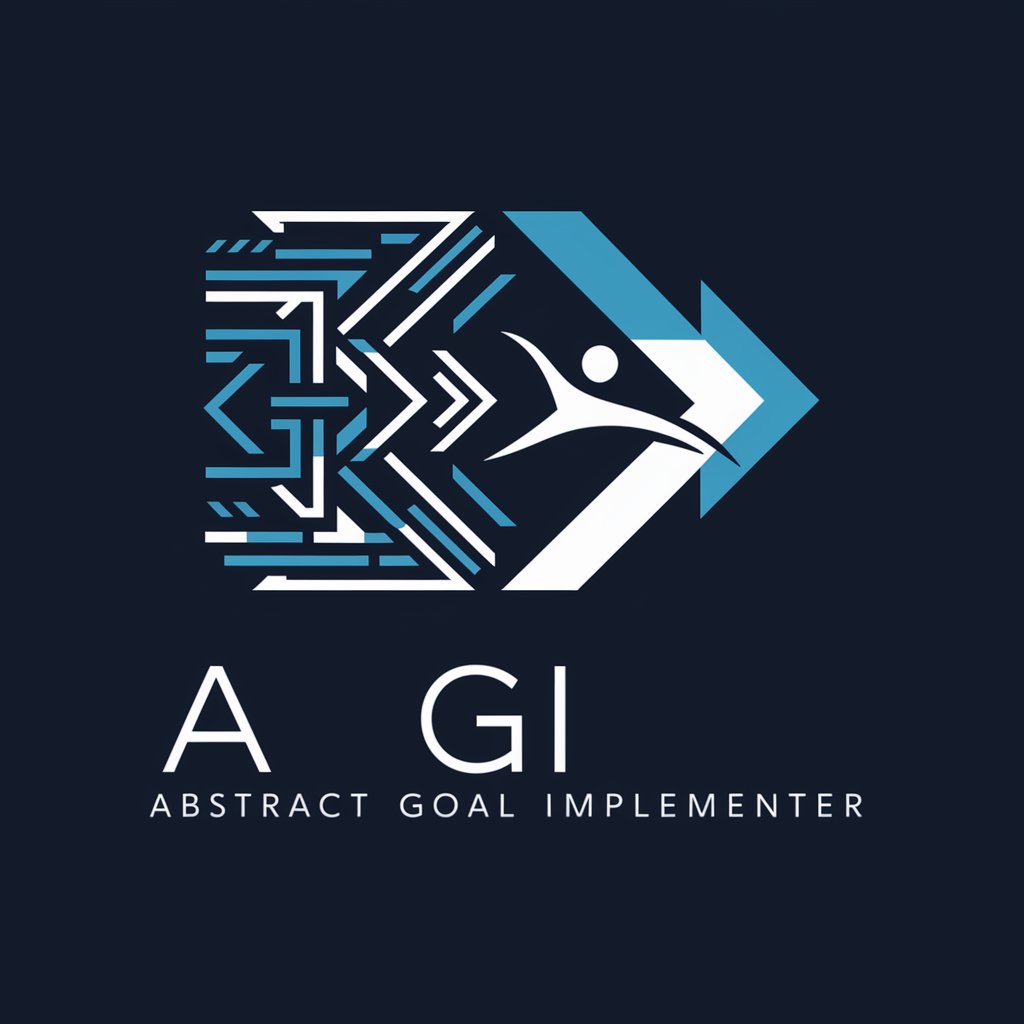AGI - Versatile AI Intelligence Tool

Hello! How can I help you today?
Empowering Decisions with AI Intelligence
How can I assist you in achieving your goal?
What project or problem are you working on?
Let's break down your objective into actionable steps.
Tell me more about what you need help with.
Get Embed Code
Overview of Artificial General Intelligence (AGI)
Artificial General Intelligence (AGI) refers to a type of artificial intelligence that can understand, learn, and apply its intelligence to solve any problem, much like a human being. Unlike narrow AI, which is designed for specific tasks (e.g., voice recognition or chess playing), AGI has the capability to perform any intellectual task that a human can do. This includes the ability to reason, plan, solve problems, think abstractly, comprehend complex ideas, learn quickly, and learn from experience. AGI is still largely theoretical and not fully realized in practice. A typical AGI system would exhibit cognitive abilities, understand context, and adapt to new situations autonomously. For example, an AGI could read and understand a novel, engage in a meaningful conversation, solve complex scientific problems, or learn new skills without explicit programming. Powered by ChatGPT-4o。

Key Functions of AGI
Problem Solving
Example
An AGI system could be tasked with finding a cure for a disease. It would autonomously gather and analyze vast amounts of medical data, develop hypotheses, and conduct virtual experiments to test them.
Scenario
In a pharmaceutical research lab, AGI might analyze genetic data and medical histories to identify potential drug targets.
Natural Language Understanding and Interaction
Example
AGI systems could converse with humans in a natural, human-like manner, understanding nuances, idioms, and context.
Scenario
In customer service, an AGI could handle complex queries, provide personalized advice, and even detect and respond to emotional cues from customers.
Autonomous Learning and Adaptation
Example
AGI can learn new skills or adapt to new environments on its own. For instance, an AGI could teach itself to play a new musical instrument just by observing others or reading about it.
Scenario
In an educational setting, AGI could personalize learning plans for students, adapting to their learning styles and pace.
Ideal Users of AGI Services
Researchers and Scientists
AGI can aid in complex problem-solving and data analysis, making it invaluable for scientific research and discovery. Its ability to process and interpret large datasets can accelerate research in fields like medicine, climate science, and physics.
Businesses and Enterprises
AGI can revolutionize how companies operate by automating decision-making processes, providing advanced customer interactions, and optimizing logistics and supply chains. Its adaptability makes it suitable for various industries, from finance to manufacturing.
Educational Institutions
AGI can offer personalized learning experiences, adapt teaching methods to individual student needs, and assist in research. It could also be used to automate administrative tasks, allowing educators to focus more on teaching.

Guidelines for Using AGI
Initial Access
Visit yeschat.ai for a free trial without the need for login or ChatGPT Plus.
Define Purpose
Identify and clarify the specific task or query you intend to address with AGI, such as data analysis, creative writing, or problem-solving.
Interact Intelligently
Engage with AGI using clear, concise questions or commands. Provide context or specific details to enhance the accuracy and relevance of responses.
Evaluate Responses
Critically assess the information provided by AGI for accuracy and applicability to your task, and refine your queries as needed.
Apply Insights
Utilize the insights or solutions offered by AGI in your project or decision-making process, ensuring to cross-reference with other sources when necessary for verification.
Try other advanced and practical GPTs
青花瓷化我 Blue and white porcelain me
Transform Your World into Blue and White Porcelain

Pitch Perfect
Elevate Your Pitch with AI

Vedic Health Mentor
Empowering your health with AI-driven Ayurvedic wisdom.

O-Level Tutor
Empowering O-Level Success with AI

Chinese Fortune Teller
Unveiling Life's Mysteries with AI-Powered Divination

First Aid Guru
Empowering you with AI-powered first aid advice

The Ultimate Business Mentor
Empowering Your Business Decisions with AI

月曜日のサポーター
Brighten Your Mondays with AI-Driven Playfulness

智能算命师
Insightful Guidance through AI-Powered Chinese Divination

예수님과의 대화
Guidance from 예수님, Powered by AI

Divine Messenger
Empowering Spiritual Conversations with AI

🌎SDGs Declaration
Empower Action Towards Sustainability

Frequently Asked Questions about AGI
What is AGI and how does it differ from regular AI?
AGI, or Artificial General Intelligence, is an advanced form of AI that has the ability to understand, learn, and apply its intelligence broadly and flexibly across a wide range of tasks, much like human intelligence. Unlike regular AI which is designed for specific tasks, AGI can adapt its responses and functionalities to new, unforeseen scenarios.
Can AGI create original content?
Yes, AGI can generate original content, such as writing stories, composing music, or creating artwork. It does this by analyzing patterns in existing data and extrapolating new, creative outputs from that analysis.
How does AGI ensure data privacy and security?
AGI systems are typically designed with robust security protocols, including data encryption and strict access controls, to protect user data. Regular updates and monitoring help maintain security against evolving threats.
Can AGI assist in complex problem-solving?
Absolutely. AGI can analyze vast amounts of data, recognize patterns, and suggest solutions based on learned information, making it invaluable in complex problem-solving scenarios across various domains.
Is AGI accessible for users with no technical background?
Yes, AGI is designed to be user-friendly and accessible to individuals regardless of their technical expertise. Intuitive interfaces and clear instructions allow users to interact with AGI effectively.
